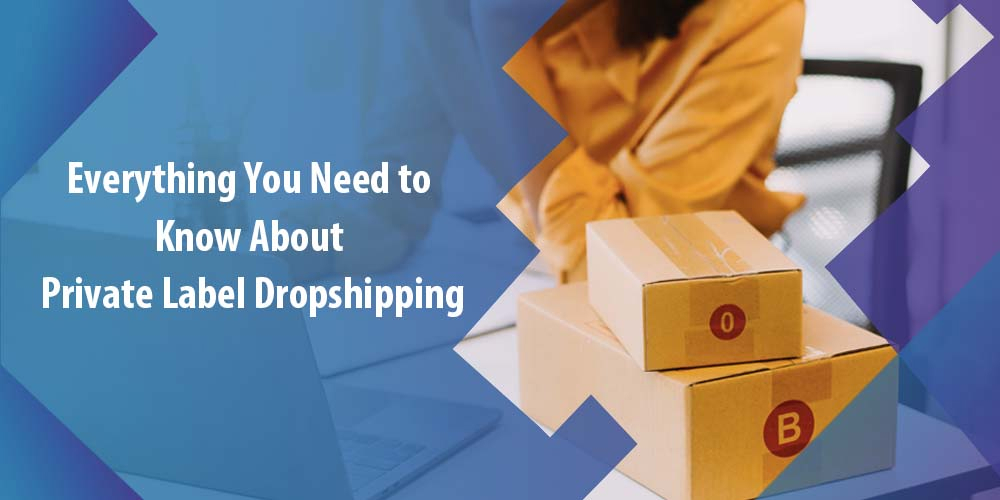Table of Contents
- What is Private-label Dropshipping?
- How to Dropship Private Label Products for Small Businesses
- Best Private-label Dropshipping Suppliers
- Things You Need to Consider for Private Label Dropshipping
- Private Label and DTC Brands
- Private Label Dropshipping VS. White Label Dropshipping: Which One is Better?
- FAQs for drop shipping private label products
- Conclusion: Why Choose Private Label Dropshipping
Dropshipping can attract entrepreneurs looking for a business with low startup and overhead costs. Private label dropshipping can elevate your business into a unique brand in a heavily commoditized space.
If you’re interested in the potential for private label dropshipping, we’re here to answer all your questions. Discover the pros and cons of dropshipping, how to start a private label dropshipping business, how to choose private label products, and the 11 best private label dropshipping suppliers in different niches.
What is Private-label Dropshipping?
Private label dropshipping is the practice of applying your label to products others make and selling them as your own. Custom label dropshipping allows you to offer a wide range of unique products with little to no overhead.
Dropshipping vs. Private Label Dropshipping
Both dropshipping and private label approaches have their own strengths and weaknesses. One might be better suited to your needs, so it’s worth comparing their key features side-by-side to give you an idea of which is right for you.
Dropshipping has a lower startup cost, as you don’t have to keep inventory or purchase products ahead of time. All you have to do is focus on finding the right suppliers and managing your sales platform. Once someone places an order, shipping and warehousing logistics will be outsourced, and the sales will be shipped instantly from the supplier to the customer’s doorstep.
Private label dropshipping, on the other hand, combines the advantages of dropshipping with private labeling. With permission from suppliers, you will be able to sell items under your own brand and market them as unique, customized products, while manufacturing, inventory, labeling, and shipping will all be handled by your chosen supplier.
Compared to the traditional private labeling model, private label dropshipping helps you save costs in terms of research, development, and production. However, you will still have to prepare funds for branding and labeling, and also adjust your budget for the supply manufacturer’s minimum order requirements.
| Business Model | Dropshipping | Private Label Dropshipping |
| Product Selection | Generic products with supplier branding | Customized products under your own brand |
| Product Differentiation | Limited possibility to differentiate from competitors | Able to create unique products and brand story |
| Product Manufacture | By third-party supplier | By third-party supplier |
| Minimum Order Requirements | Not required | Usually required |
| Inventory | No inventory storage or management is required | No inventory storage or management is required |
| Shipping | Handled by supplier | Handled by supplier |
| Startup Costs | Usually lower | Higher due to branding and minimum order quantities |
| Profit Margins | Usually lower due to competition on price | Potentially higher due to brand control and premium pricing |
The Pros and Cons of Private Label Dropshipping
Benefits of Private-Label Dropshipping
Private-label dropshipping has low overhead and startup costs, leading to higher margins. It allows entrepreneurs to offer unique products without paying for development and production costs. Private label dropshipping is a cost-effective way to create a distinct brand with offerings no one else has. Private label dropshipping can offer several benefits for online retailers. Here are a few of them:
- Control over branding: With private label dropshipping, you can create and control your brand. You can design your products with your logo, packaging, and messaging to differentiate yourself from other sellers.
- Higher profit margins: Since you are sourcing products directly from the manufacturer, you can negotiate better pricing and have more control over the costs associated with your products. This can result in higher profit margins than selling someone else's branded products.
- Scalability: Private label dropshipping can be a scalable business model, allowing you to easily expand your product offerings and grow your business without managing inventory or dealing with the manufacturing process.
- Flexibility: With private label dropshipping, you can adjust your products and pricing based on market demand and your business goals.
- Customer loyalty: By building your brand through private label dropshipping, you can create a loyal customer base that trusts your products and will be more likely to purchase from you again.
Disadvantages of Private Label Dropshipping
Unfortunately, there are some drawbacks to private label dropshipping. As mentioned earlier, launching a private label usually costs more money than basic dropshipping. You'll need to design your branding and labels and then produce them. You may also need to buy more products to cover the expenses of designing your brand.
Moreover, it could be challenging to find a supplier that is willing to help manufacture and brand your customized products. Even when you do find the right supplier, the minimum order requirements have to be met for your products manufactured. This is why it is important to budget and plan your marketing strategies carefully before fully committing to starting up your private label.
How to Dropship Private Label Products for Small Businesses
Now that you understand the advantages and challenges, are you ready to start a private-label dropshipping business? Working with small businesses can help you pick up unique products and secure exclusive relationships with producers. You could even get in on the ground floor of the next big thing—or at least a hit with your target market!
Some types of dropshipping, such as private label clothing dropshipping, are especially suited to a small business-based approach. These smaller producers create their designs but often have limited if any, relationships with sellers. This lets you contact them early and establish a favorable and potentially exclusive deal to ship their goods.
Here's how to start dropshipping private label products step by step:
Step 1: Select a Private Label Product
When looking for private-label products to sell, be sure to conduct thorough product research to gauge market demand and competition levels to avoid wasting funds and effort.
You can start with tools like Google Keyword Planner and Ubersuggest, as they offer keyword search volume estimates to help you evaluate your product ideas' potential and level of interest. You can also engage with your target audience through online forums, social media, or surveys to develop a deeper understanding of their pain points and then find products that can actually cater to their needs.
Additionally, a competitive price is crucial. Browse through competitor websites or popular dropshipping platforms to analyze the price range and carefully factor in all costs, including manufacturing, shipping, custom branding elements, and potential platform fees, to ensure healthy profit margins for long-term success.
Step 2: Find a Reliable Supplier
Once you've identified your potential market, you need to find a supplier that can provide high-quality items and ideal services.
Try leveraging online directories like SaleHoo, which often provide supplier contact information, product categories, and minimum order quantities (MOQs). Attending business expos is also a good way to search for private label dropshipping suppliers, as this allows you to personally assess product quality and discuss your specific needs directly with representatives. If you don’t have these resources, you can always get referrals from other dropshippers or browse dropshipping platforms to look for companies specializing in your chosen product category.
After that, you may reach out to these suppliers directly through their websites or social media and inquire about details of their services. To assess the reliability and compatibility of the supplier, consider factors like:
- Experience with Private Label: Ensure the supplier has proven experience handling private label projects by looking for testimonials or references from satisfied clients.
- Fulfillment Capabilities: Make sure the supplier has the resources to meet your product demand and deliver on time.
- Quality Control Measures: Request detailed information on how they can satisfy your specific request and ensure product consistency.
- Minimum Order Quantities (MOQs): Understand the MOQ requirements to ensure they align with your budget and sales projections.
- Communication & Customer Service: Clear communication is vital. Choose a supplier who is responsive, readily addresses questions, and provides timely updates throughout the production process.
- Competitive Pricing & Payment Terms: Compare pricing structures and payment terms offered by different suppliers, then negotiate favorable terms that fit your budget and cash flow.
When you have narrowed down your pick, order samples of your chosen products with these suppliers to ensure the quality meets your standards. If the products are up to par, feel free to place a full-scale order to start the manufacturing and labeling process!
Step 3: Create Your Brand and Establish Your Brand Identity
The next step is to design a brand that reflects your values and appeals to your target market. With private-label dropshipping, you have the power to build a brand beyond just selling a product, which will help you stand out from the crowd.
Consistency is key when it comes to brand identity, whether it’s about sustainability, innovation, or community. Identify the values you can offer, create a story that is connected with your customer base and their needs, and then maintain this image throughout your marketing efforts, including advertisement campaigns, website or social media management, customer service, etc. This will create a seamless brand experience and improve your brand’s overall image.
Plus, brand building also involves deciding on your logo, color palette, product packaging, and other details for visual storytelling. But don’t just focus on the aesthetics. Select a design that is memorable while resonating with your brand’s voice. The packaging should also be functional in terms of protection and showcase essential information about your private-label dropshipping products, including ingredient details or instructions for use.
If possible, try incorporating some elements of engagement with your customers. Custom packaging with written names or personalized notes are several ways you can connect with your customers at a slightly more intimate level.
Step 4: Choose an E-Commerce Platform and Build Your Online Store
Now, you can launch your product and start selling! The e-commerce platform you choose will act as a storefront where your brand comes to life, attracting customers, showcasing your products, and ultimately driving sales, so it’s important to choose wisely and make sure the platform fits your specific needs.
For instance, platforms like Shopify, WooCommerce, and BigCommerce offer a range of features that cater to businesses of various sizes. Be sure the platform allows you to customize the design and functionality to create your ideal online store while providing email marketing tools, analytics platforms, and even dropshipping software to help you automate tasks and gain valuable customer insights.
After you’ve chosen the suitable platform, optimize your product showcase by including high-resolution images from professional photographers or your supplier, as captivating visuals are crucial for grabbing attention and driving sales. You can also consider offering a zoom feature to allow customers to get a closer look.
You should also make sure that your product descriptions are informative and engaging. Provide all the details a customer might need to make a purchase decision, including features, benefits, specifications, and sizing information. It is also recommended to incorporate relevant keywords to improve your visibility and organic traffic with search engines.
Also, don’t overlook the power of reviews, which are essential in building trust with customers. Enable customer reviews on your product pages. Positive reviews act as social proof, bolstering your credibility and influencing purchase decisions. Don't shy away from negative reviews, either. Address them constructively to show you care about customer experience and prove that you are committed to improvement.
Furthermore, security badges, verified payment gateway logos, or even memberships with reputable organizations like the Better Business Bureau are also visual cues that can instill confidence in shoppers, making them feel secure when making purchases in your store, so make sure to leverage them!
Step 5: Promote Your Private Label Products
To ensure the success of your private label dropshipping business, you have to promote your products effectively to raise brand awareness, attract potential customers, and ultimately increase sales. This can be done with social media, paid advertising, influencer marketing, and content marketing.
Social Media
Social media offers engagement outside the reviews of your e-commerce platform. Consider the demographics of your target audience and identify the social media platforms that they would frequently use. Do they prefer the visually-driven world of Instagram, the community-oriented discussions on Facebook, or the fast-paced short videos on TikTok? Once you figure this out, tailor your content and presence to resonate with your ideal customers.
Paid Advertising
Running targeted pay-per-click (PPC) campaigns using platforms like Google Ads or Meta Ads can also help you reach new customers online. Google Ads will let you display your brand at the top of search results for relevant keywords, whereas Meta Ads allows the ad campaign to be run across all Meta platforms, including Facebook, Instagram, Messenger and WhatsApp. Carefully create your ad copy and landing pages to attract the right audience with these campaigns.
Influencer Advertising
Working with influencers to promote your private-label products is a great way to create engaging content that feels natural. This could involve product reviews, co-created tutorials, behind-the-scenes glimpses, or even customer giveaway campaigns. Partner with influencers whose audience aligns with your target market and whose brand image complements yours. You can also consider setting up an affiliate program where influencers earn a commission for every sale they drive. This incentivizes them to promote your products with genuine enthusiasm.
Content Marketing
Promotion methods in this category include posting blog articles, email marketing, and other ways that can help you promote your product with informative content. Content like this can leave a lasting impression and attract customers long after publishing. On the other hand, email marketing can be combined with exclusive offers and product updates that can nurture customer loyalty and encourage repeat purchases.
Step 6: Monitor and Adjust
With everything up and running, your private label dropshipping journey has just begun, as your brand will require constant monitoring and adaptation to thrive.
Fully utilize your e-commerce platform's analytics to track key metrics like product performance, customer acquisition costs, and conversion rates. These reveal your bestsellers, customer behavior patterns, and areas to optimize marketing efforts.
On top of that, customer feedback through reviews, surveys, emails, or social media interactions can also serve as valuable input that can help you refine your product offerings and cater to evolving customer needs.
With these insights, you can make informed decisions to adjust your marketing strategies and experiment with different campaigning methods, product descriptions, pricing structures, platforms, and even website layouts to see which approach resonates the most with your audience and maximize your profits.
Remember, creating and selling private-label products takes time and effort. However, it can be a profitable and sustainable business model if done correctly.
Best Private-label Dropshipping Suppliers
We've compiled a list of the best private-label dropshipping suppliers. We've got you covered if you're looking for private supplier dropshipping companies to expand your offerings or build your first store.
HyperSKU
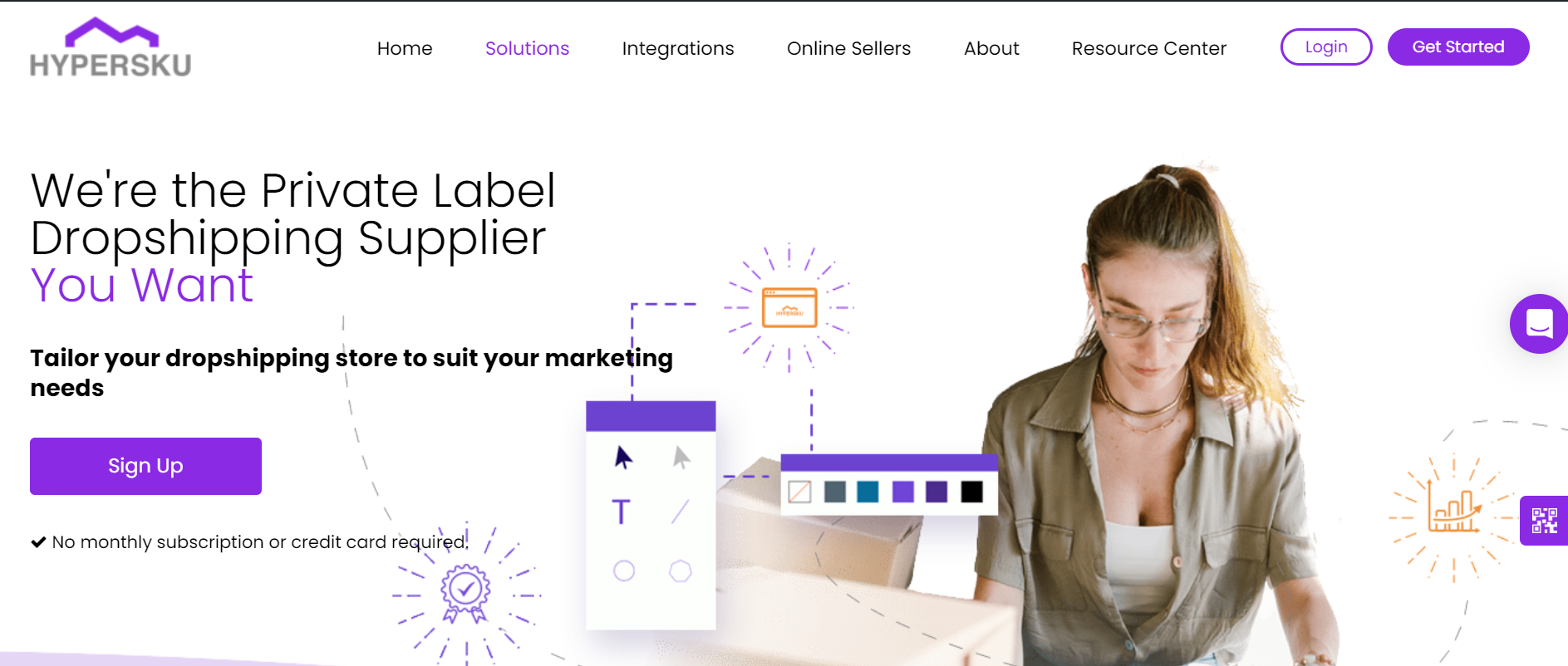
- Niche: Upscale to luxury clothing, fragrances, and cosmetics.
- Key Service: Engaging visuals and a satisfying unboxing experience.
- Price: No upfront fees. You only pay for the item and shipping when you sell.
- Pros: They offer quality checks, factory comparisons, aftersales-guaranteed and a range of product customization. Pick, pack & ship for you. They also offer extensive private-label dropshipping services. HyperSKU allows customers to choose from extensive product customization and branded packaging options, including thank-you letters, tags, bags, and more. They also reach out to factories to get customers the best deal and have transparent inventory tracking.
- Cons: Might have MOQ for custom orders.
- Link: https://www.hypersku.com/
Alibaba

- Niche: Can satisfy virtually any need at scale.
- Key Service: Mass-produced goods for B2B businesses.
- Price: Among the lowest prices you will find.
- Pros: Your goods can be produced at volume to a high-quality standard for an affordable price.
- Cons: Goods have low margins, and you'll be competing with major retailers.
- Link: https://www.alibaba.com/
AliExpress
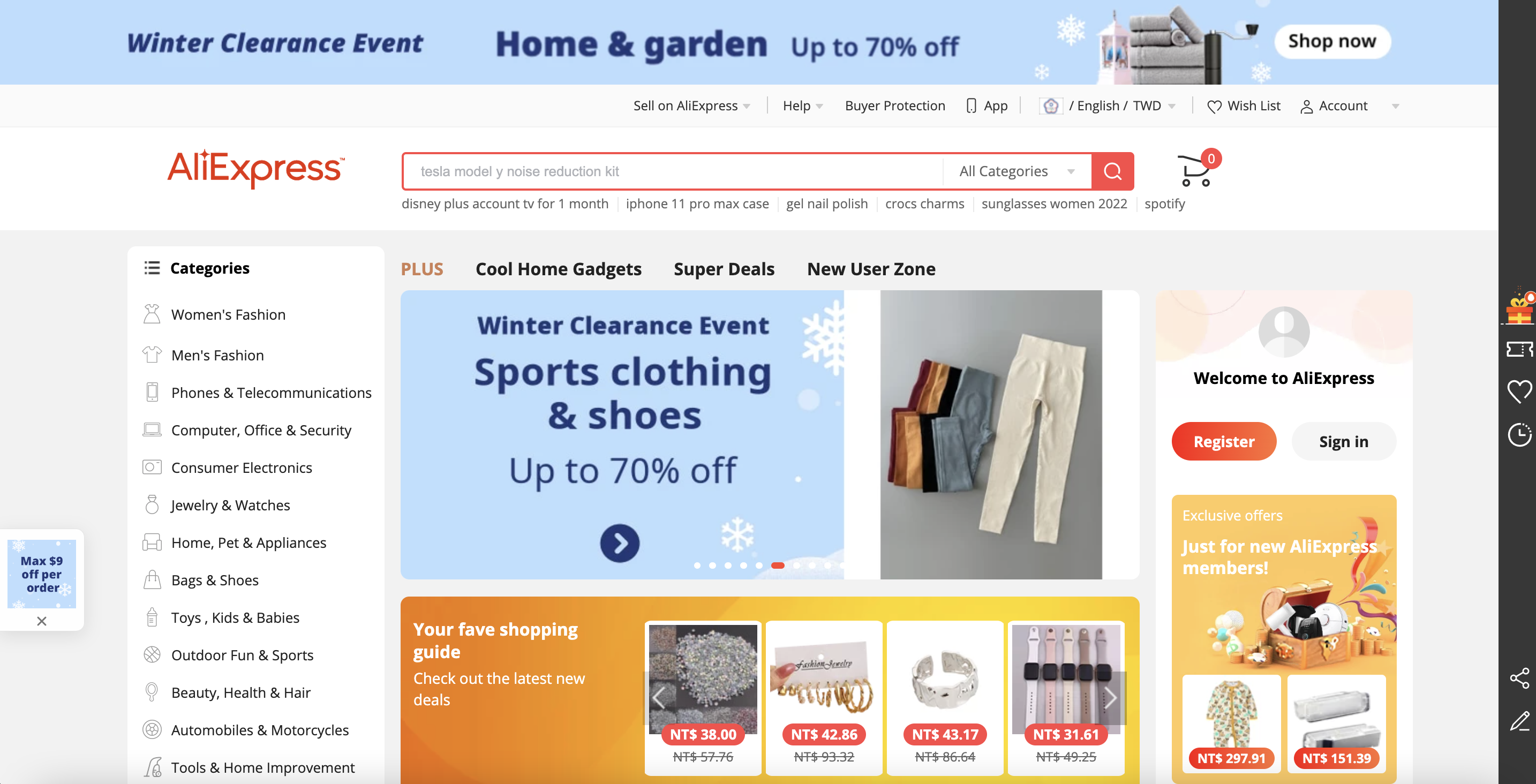
- Niche: Consumer goods at the scale you need.
- Key Service: Mass-produced goods for B2C businesses.
- Price: Low prices that are hard to beat anywhere.
- Pros: You can order unique items in large or small batches.
- Cons: It can be difficult to find unique goods.
- Link: https://best.aliexpress.com/
Wiio
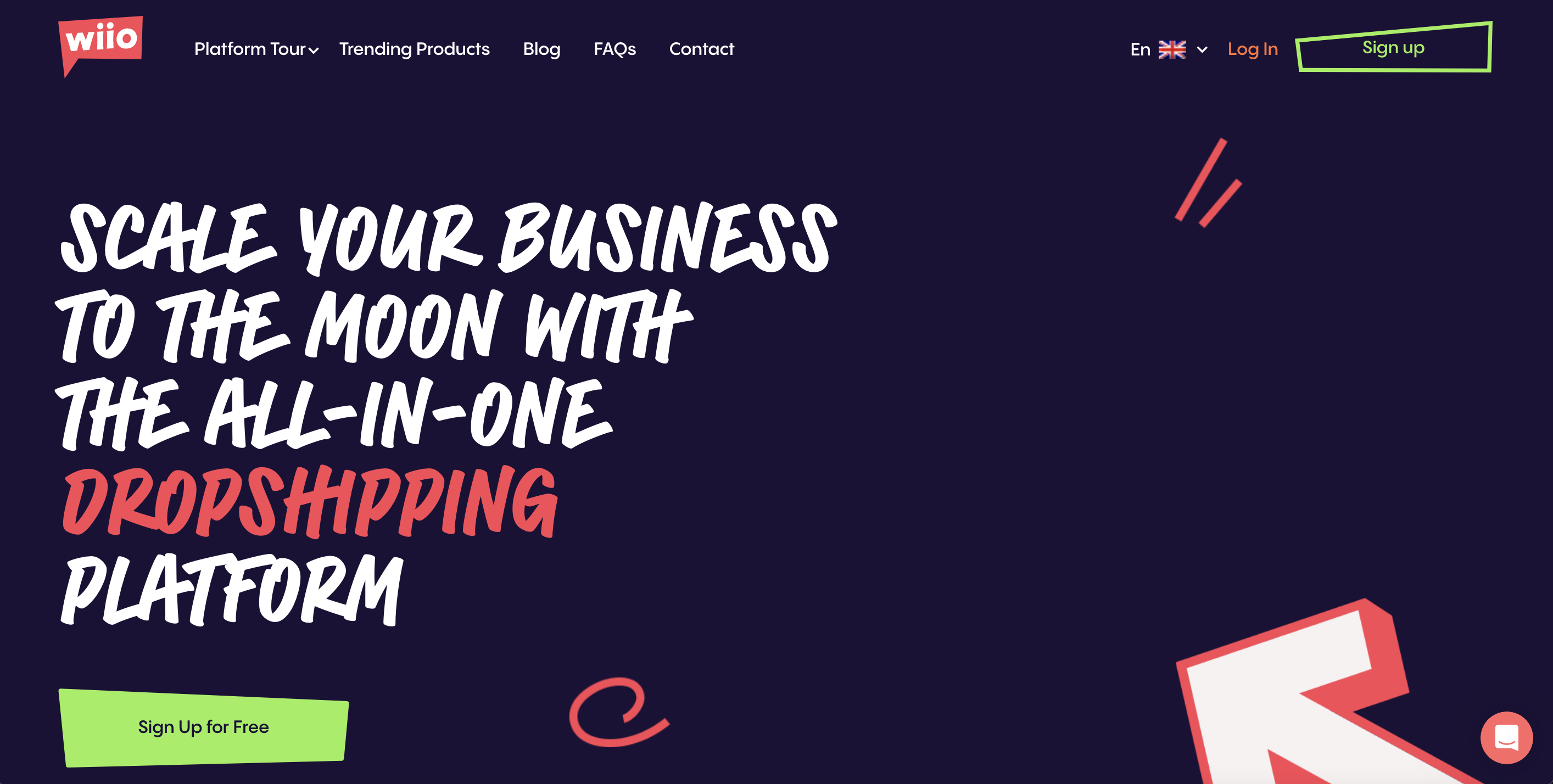
- Niche: Small-scale dropshipping companies.
- Key Service: Low prices for high-quality products they get through supplier relationships.
- Price: Some of the lowest prices on the market.
- Pros: No warehousing fees if your product sells fast.
- Cons: They only have three warehouses, two in China and one in the United States.
- Link: https://www.wiio.io/en/
Apliiq
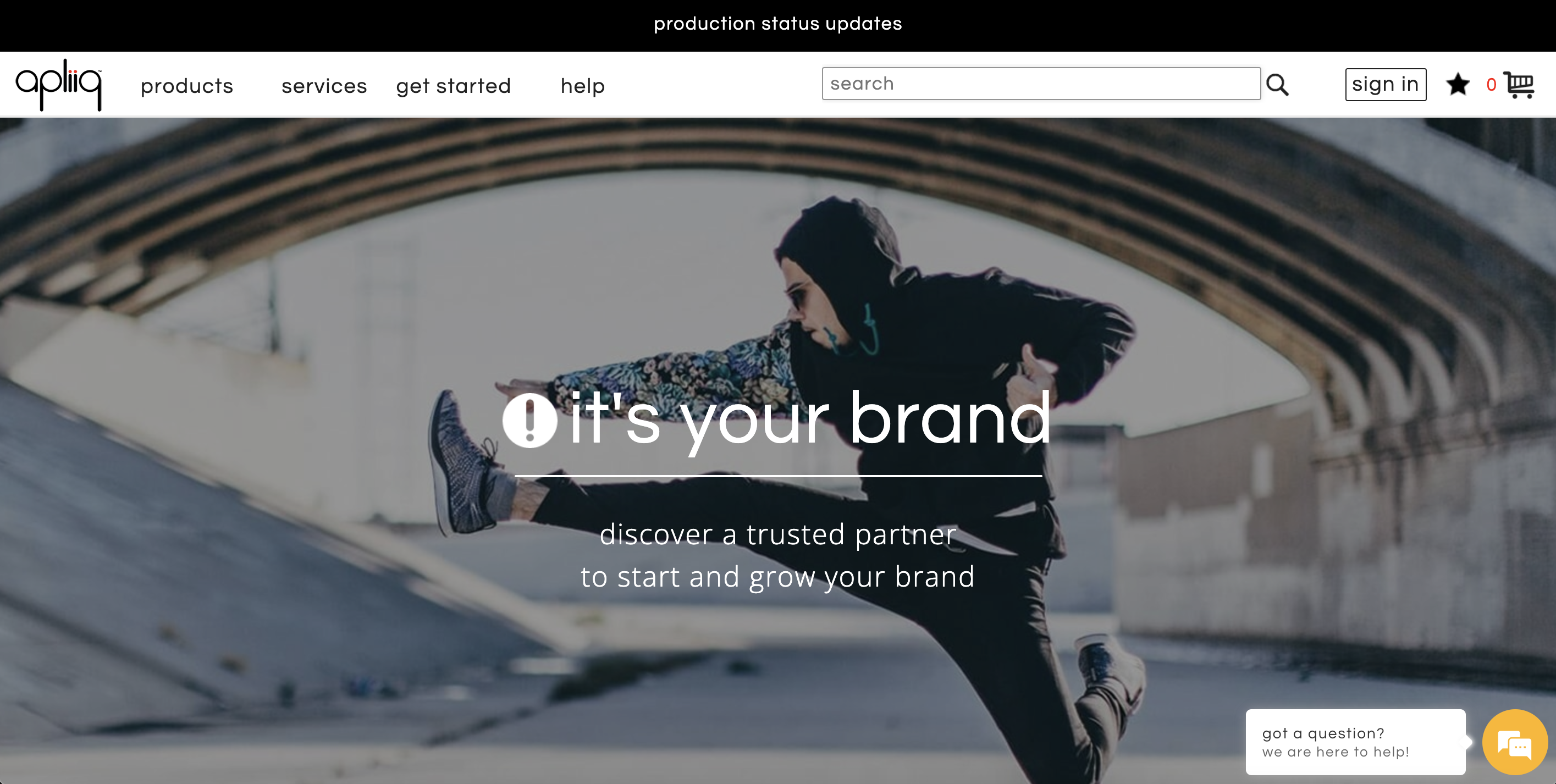
- Niche: Upscale apparel dropshippers.
- Key Service: Custom-designed streetwear.
- Price: More expensive than other suppliers, but with discounts for larger orders.
- Pros: You can submit custom designs on high-quality fabrics.
- Cons: The price point may be outside the range of some clientele.
- Link: https://www.apliiq.com/
Printful
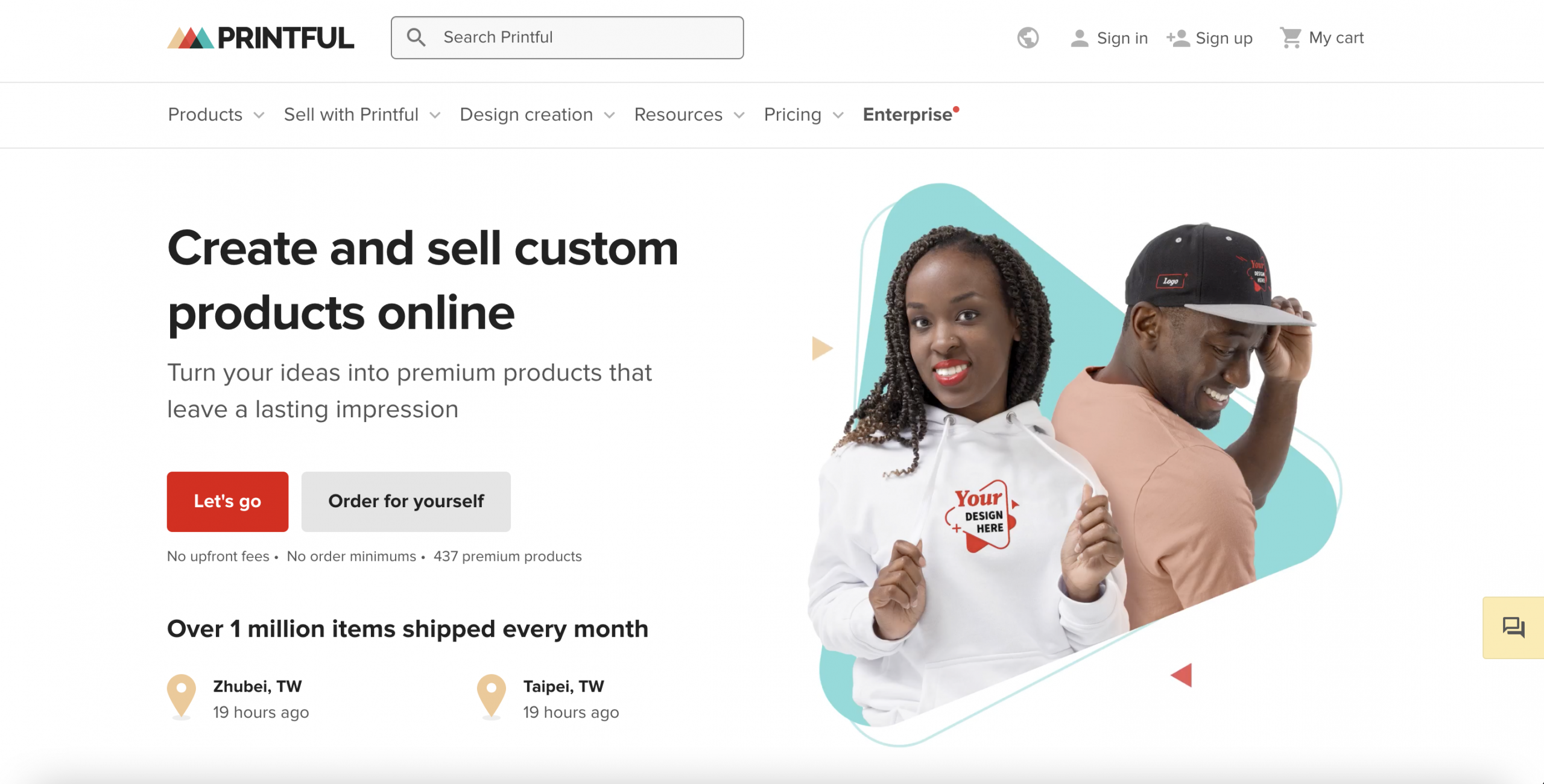
- Niche: Clothing and accessories.
- Key Service: On-demand printing for clothing and accessories.
- Price: Price scales with orders according to your need.
- Pros: You can print as many items as you need and avoid holding onto inventory that doesn't sell.
- Cons: Your ability to sell depends on if your printing partner is available.
- Link: https://www.printful.com/
Dropifield
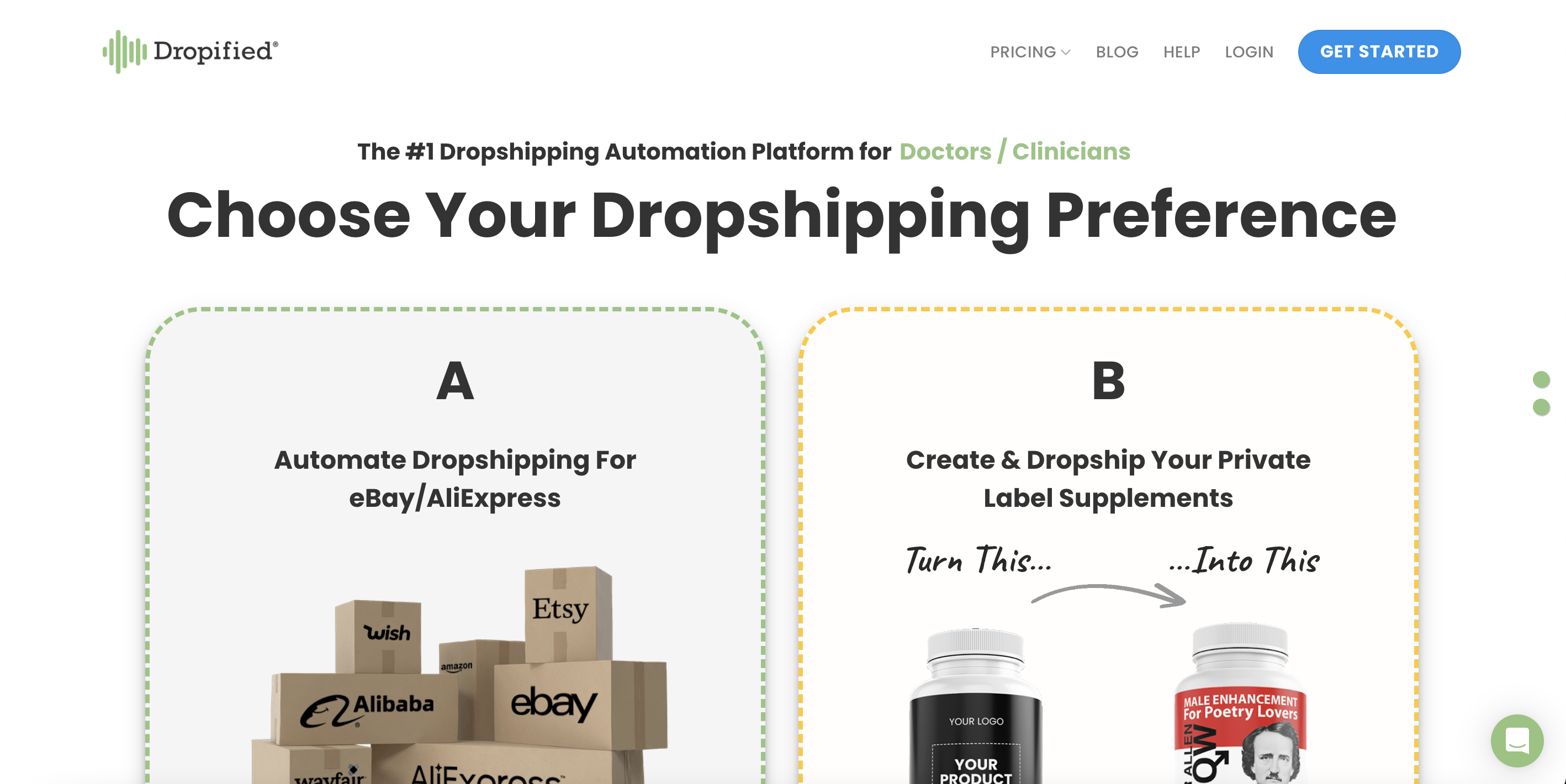
- Niche: Private-label dropshippers requiring volume.
- Key Service: Automated private label dropshipping for AliExpress and eBay.
- Price: $97 per month, $197 per month, or $397 per month, depending on your needs, with a $397 startup fee.
- Pros: No extra fees for freight or storage.
- Cons: A monthly subscription fee might not fit your business needs.
- Link: https://www.dropified.com/
BigBuy
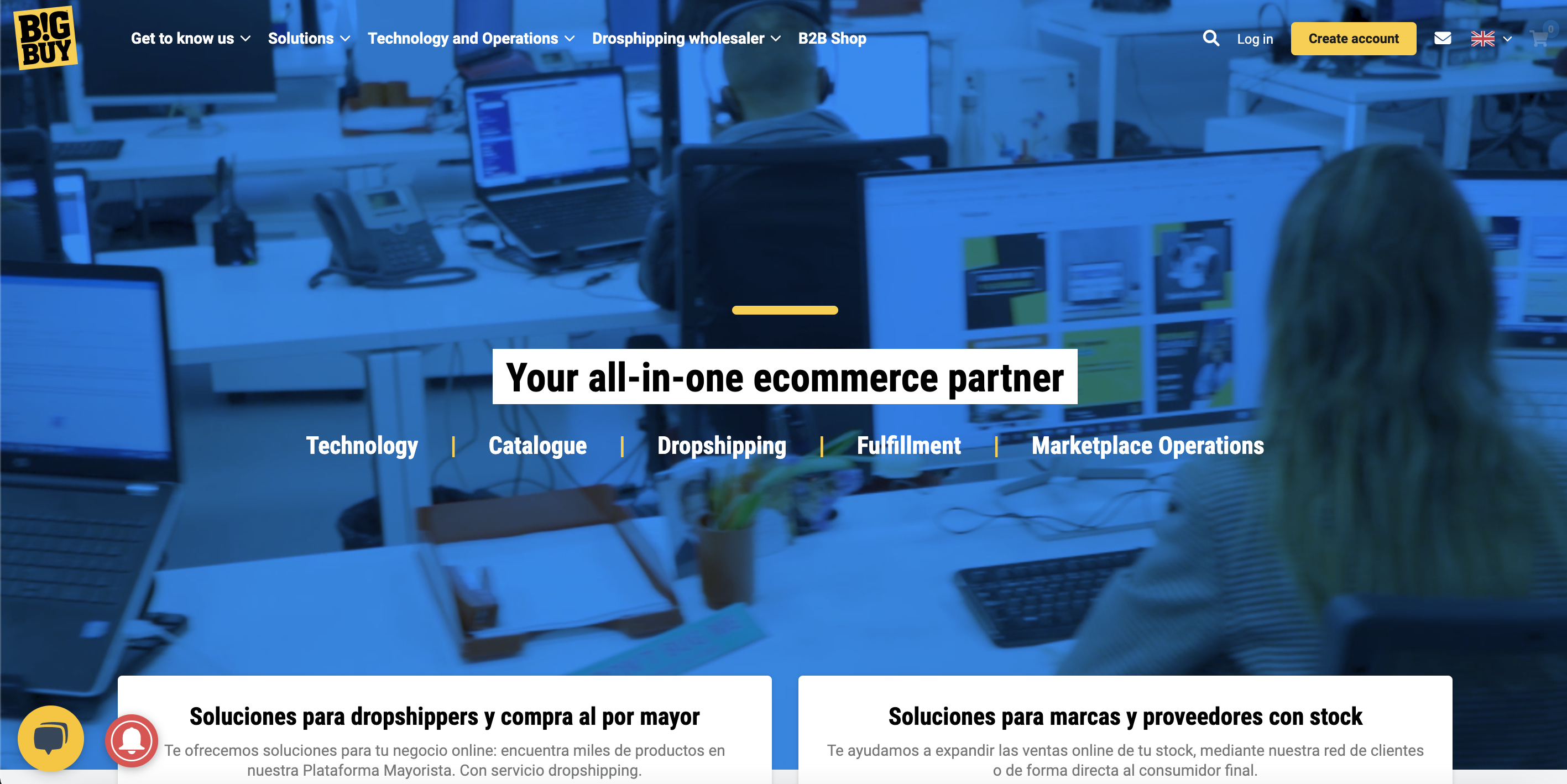
- Niche: B2B dropshippers looking for an all-in-one solution.
- Key Service: All-in-one service for your dropshipping business.
- Price: Prices across their expansive catalog are competitive.
- Pros: They can help you run every aspect of your dropshipping business.
- Cons: BigBuy is based in the E.U.
- Link: https://www.bigbuy.eu/en/
BTS Wholesaler
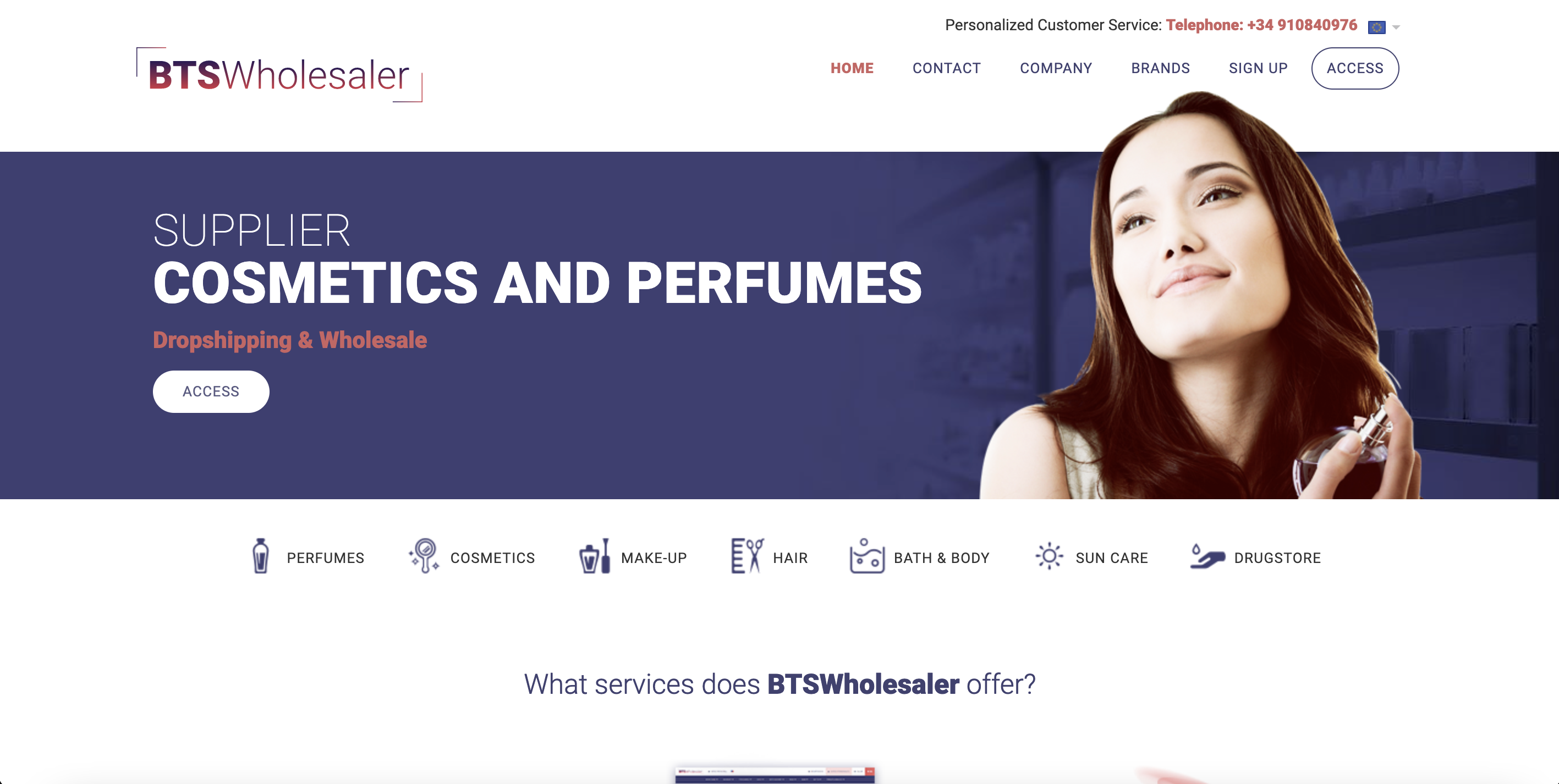
- Niche: Wholesale perfumes and cosmetics
- Key Service: Delivers wholesale perfumes and cosmetics across the European Union.
- Price: Less than retail, as they can purchase straight from manufacturers.
- Pros: They carry over 600 brands and offer discounts on large orders.
- Cons: They only ship within the E.U.
- Link: https://www.btswholesaler.com/eu
TeaSwan
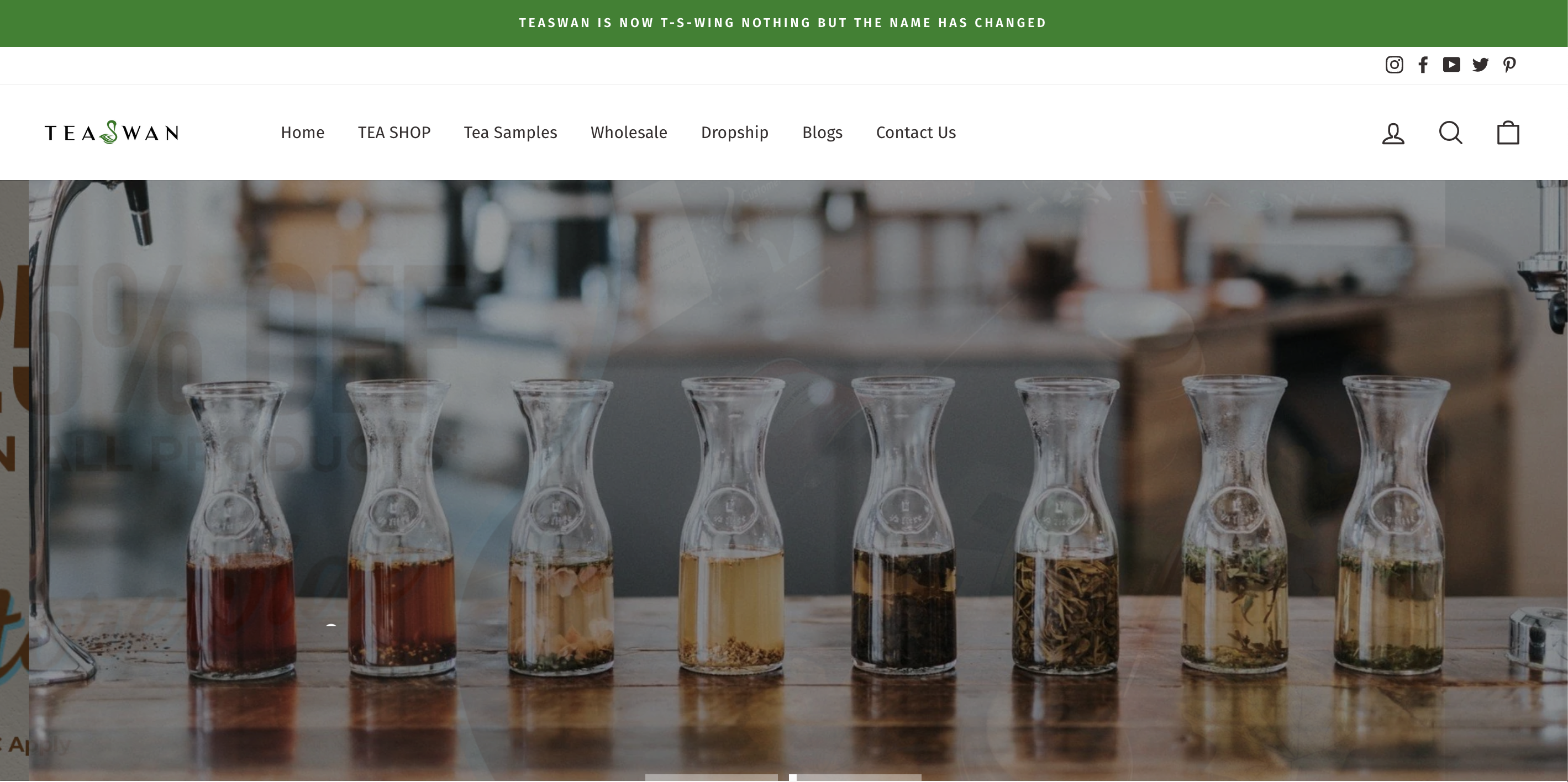
- Niche: Tea enthusiasts.
- Key Service: Gourmet teas sourced globally.
- Price: Less expensive than other loose-leaf and packaged tea suppliers but more expensive than typical commercial brands.
- Pros: They have a vast network of suppliers than can offer unique teas.
- Cons: Limited packaging options for private-label sellers.
- Link: https://teaswan.com/
Dripshipper
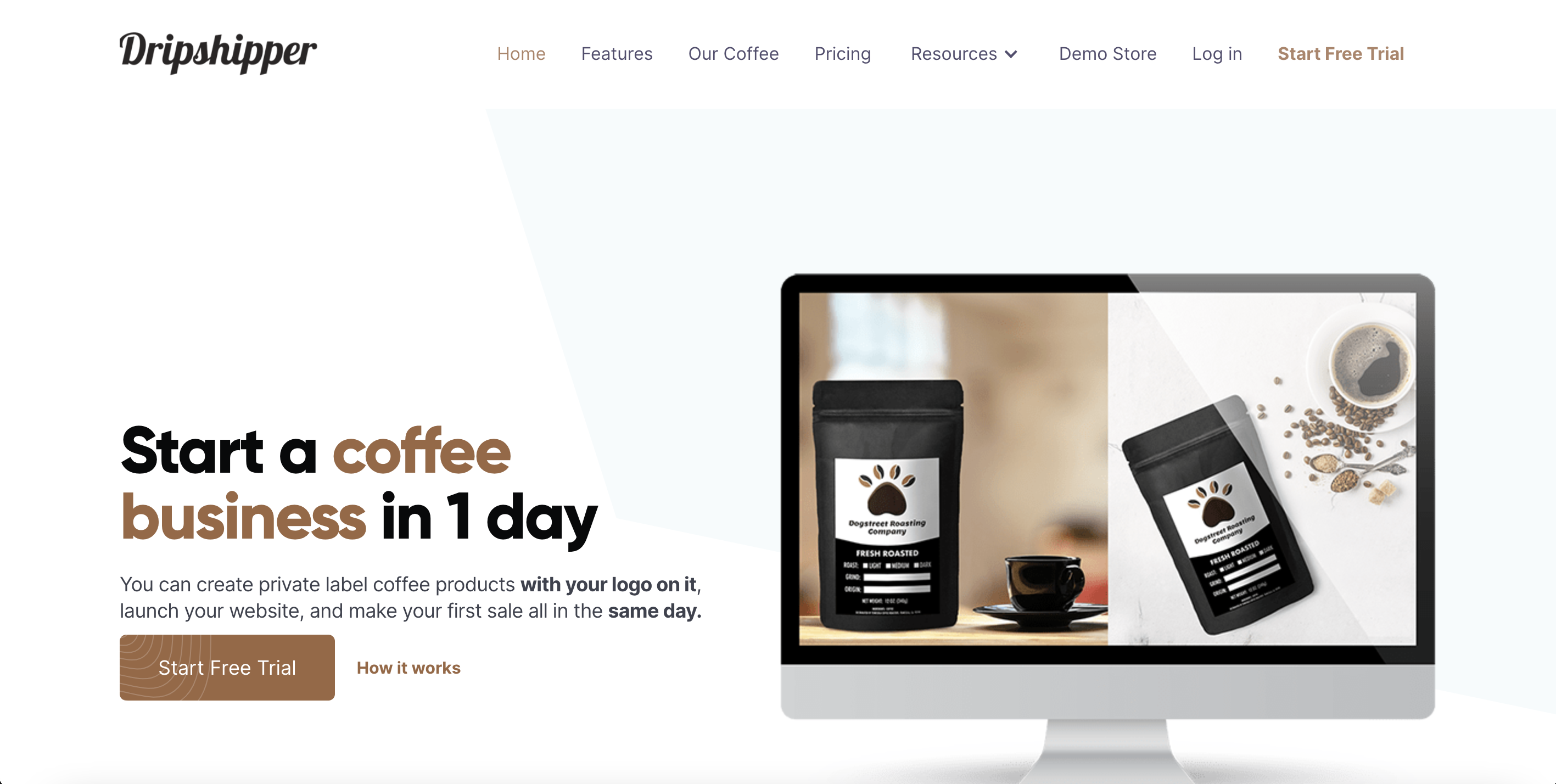
- Niche: Coffee
- Key Service: Offering quality coffee wholesale and dropshipping
- Price: $30 per month for a starter program, $99 monthly for a professional program, and $197 for the Elite program.
- Pros: They have specialty-batch coffee offerings from top-producing regions like Colombia, Brazil, Costa Rica, Mexico, Ethiopia, and more.
- Cons: Your business model may not be compatible with Dripshipper’s monthly subscription fees.
- Link: https://www.dripshipper.io/
Things You Need to Consider for Private Label Dropshipping
There are several things that entrepreneurs need to consider before starting a private-label dropshipping business.
First, consider what types of products you intend to carry. If you're crafting a brand, it helps to know what types of products you want to focus on and what you'll be known for. You may decide to focus on a specific type or family of products. On the other hand, you might look for unifying qualities across your offerings if you don't want to limit yourself to solely beauty products or rare electronics, for instance.
You'll also want to determine what your brand will be and its qualities. Additionally, you'll need to find out how to advertise it and pay for the extra expenses of producing materials for your brand. You'll also want to find out what suppliers you'll work with, how you'll ship goods to customers, and potential contingencies if your suppliers and shippers have a problem.
Private Label and DTC Brands
Direct-to-consumer (DTC) brands are an alternative to private-label brands. However, there are some major differences you'll need to be aware of before you decide to dropship them, especially if you're intent on building your brand.
What is Direct-to-customer (DTC)?
Direct-to-consumer (DTC or D2C) is an approach where manufacturers sell directly to customers. DTC cuts out the middleman and allows producers to sell their products at a lower cost while keeping more profits.
Private Label VS. DTC Brands: Similarities and Differences
Private label and DTC brands share many similarities, but some key differences exist. Knowing them can help you prepare for the market you intend to enter.
Private label and DTC brands both create unique brands and rely on building a solid reputation with their customers to do business. They may even be able to charge a premium over competitors depending on their product quality and reputation. Many of these types of companies sell exclusively online, reducing their overhead.
However, DTC businesses cut out the middleman that private labels still have to pay. This allows DTC businesses to charge less than they might if they had to sell retail. They may also refuse to allow third parties to sell their items, even for a share of royalties. Private label brands can buy directly from their manufacturers but must cover their costs in their prices.
Private Label Dropshipping VS. White Label Dropshipping: Which One is Better?
Another business model that is commonly considered is white-label dropshipping. Like private label dropshipping, this method lets you sell generic products under your brand without handling inventory or order fulfillment. However, you can only customize the branding details, such as logo and packaging, but not the product itself.
Though this has some drawbacks, as it will be harder to control product quality and establish unique features, the upside is the starting cost for white label dropshipping is lower since there is no need for product manufacturing or customization, so dropshippers only have to pay after a customer orders the product. White-label dropshipping also saves you the worry of minimum order requirements, which is ideal for new, budget-conscious businesses that are just beginning to test their product ideas.
FAQs for drop shipping private label products
● Is Dropshipping Private Label Products Profitable?
Dropshipping private products can be highly profitable, as you can offer products no one else carries. You'll also build your brand with each shipment, allowing you to add an additional premium and increase your profit margins.
● How Much Money does it Cost to Dropship Private Label Products?
Dropshipping private-label products can be more expensive than white-label products. You'll face added branding and marketing costs and may have to purchase more products to cover your expenses.
● Where to Find a Private-label Dropshipping Supplier?
You can find private label suppliers on websites dedicated to them, such as Apliq, NicheScraper, SupplyMeDirect, Dripshippers, and more. You can also visit trade shows to find independent producers and artisans who can work with you. Searching on Google, Etsy, Instagram, or Pinterest can also help you find suppliers.
● How do I Price Private-label Products?
To price your private label products, determine your expenses to sell each item. Then add a profit margin that allows you to avoid selling at volume to make money. You'll also want to survey competitors to align your prices with tiers.
Conclusion: Why Choose Private Label Dropshipping
Overall, a private label dropshipping business offers numerous benefits over a white label dropshipping business, despite the added costs. With a private label, you can establish an independent brand and distinguish your business from countless others. Over time, your brand can allow you to charge a premium over competitors if you commit to quality.
Are you looking for a reliable dropshipping supplier for your business? Contact HyperSKU today, and we can keep your business supplied with unique, quality products straight from the factory!
Related Articles Suggested For You
- The Ultimate Step-by-Step Guide for Shopify Dropshipping in 2024
- What is Branded Dropshipping & How to Start: Step-by-Step Guide
- 52 Best Private Label Products to Sell in 2024
- 25 Top Trending Products to Sell Online in 2024
- Best 20 US Dropshipping Suppliers & Companies
- 20 Top DTC Brands to Recognize in 2024

